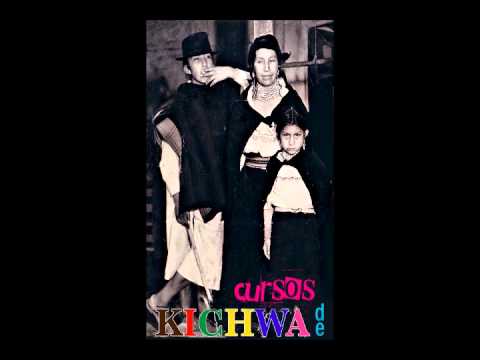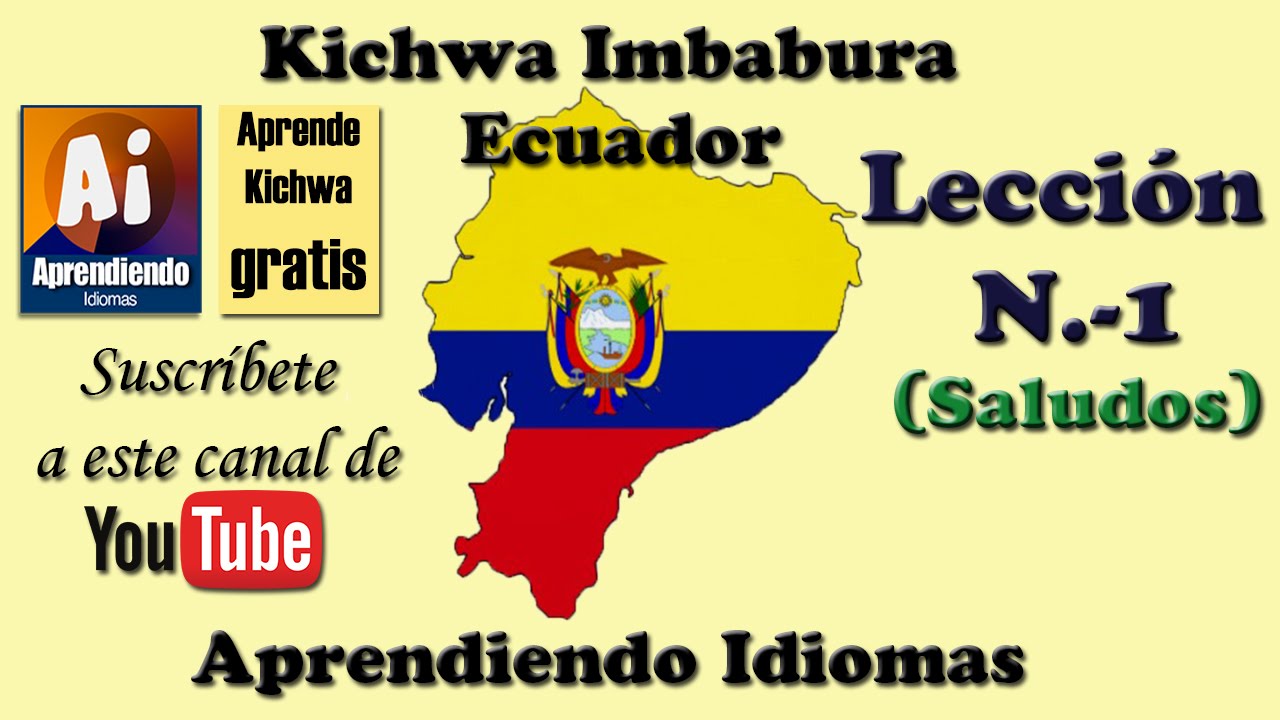Today is quite an important and exciting day for me. Today I start a new language project: Kichwa!
I have been living in Ecuador for three months now and I have decided the time has come to start working on Kichwa, the indigenous language spoken by 2.5 million Ecuadorians. I am happy with my Spanish and I know that it is going to go on getting better the longer I stay immersed in life here. That I can write that last sentence for me is a huge deal. I hated learning languages at school and I had virtually given up all hope 7 or 8 years ago. That I feel confident enough to take on this new challenge really makes me realise how far I have come in that time. Embarking on a third language is taking me into the uncharted waters of polyglottery (albeit very much in the shallow end).
And over the last 2 years of working on my Spanish at LingQ I have got a much better idea about how to go about learning a language. For my Kichwa this can be reduced down to:-
- Study phrases/sentences not words. (oh the time I wasted over the years with one word flashcards.)
- Focus on reading and listening skills.
- Play with the language and enjoy the journey (all those grammar exercises at school, no wonder I hated it.)
- Don’t worry, don’t try to be perfect.
Apart from the obvious disadvantages that it is not related to Spanish and English and that there is very little material available, there are some big advantages for me: I don’t have to learn a new script, it is fairly phonetic, the grammar is blissfully regular and (above all) I am surrounded by native speakers. So today I started classes (in Spanish - I will be learning Kichwa entirely through my second language), said hello to the present tense and sentence structure, and this afternoon I’ll get an SRS system up and running.
Let the adventure…begin!
Kichwa Resources
On the assumption that someone somewhere will find this useful (maybe not today, maybe not tomorrow…) I will keep updated here a list of resources I find along the way. This isn’t going to be a long list because there isn’t much out there. But that probably makes the list more valuable, not less.
- Dictionaries, translators and reference
Translators:
http://mokennon2.albion.edu/quichua.htm
http://kichwa.net/glossword/
kichwa.net has some other resources as well as vocabulary and phrase lists.
Spanish-Kichwa Dictionaries:
A spreadsheet with English and Spanish translation of different Quechua languages and dialects including Kichwa:
A spell-checker for LibreOffice (alpha pre-release version, but seems ok):
http://extensions.libreoffice.org/extension-center/kichwa-ecuador-spellchecker
An Anki deck compiled for a UCLA Quechua course, using Unified Kichwa:
https://ankiweb.net/shared/info/2687032161
- Online courses
Two youtube kichwa courses:
Online course with audio samples and some short stories:
- Reading material
The Very Hungry Caterpillar in Kichwa!
Wikimedia Incubator - a small selection of Wikipedia articles in Kichwa.
Ecuadorian state media in Kichwa. Lots of articles here with Spanish version.
http://www.elciudadano.gob.ec/Kc/
Monthly periodical in kichwa from Otavalo:
http://www.radioiluman.ec/radio/wp-content/uploads/2013/12/Wiñay-Kawsay-53.pdf
Ministry of education book of short stories and legends in Kichwa with Spanish translation.
Father Sun, Mother Moon. Book in paralel translation Kichwa, English, Spanish.
http://abyayala.org/informacion.php?CODLIBRO=902&FAC_CODIGO=
Recipe book in 3 languages:
http://abyayala.org/informacion.php?CODLIBRO=1561&FAC_CODIGO=
Some school books:

